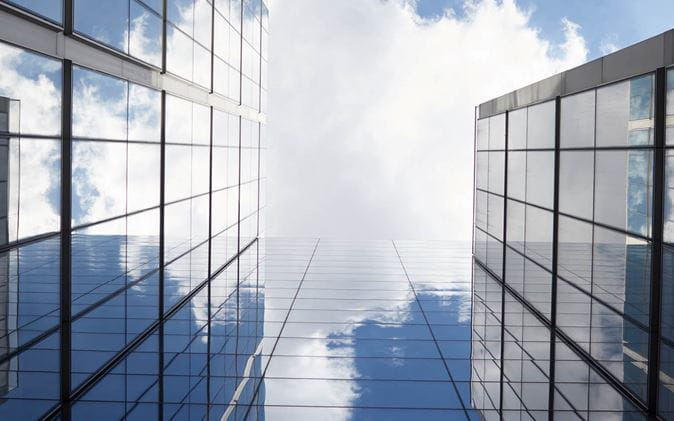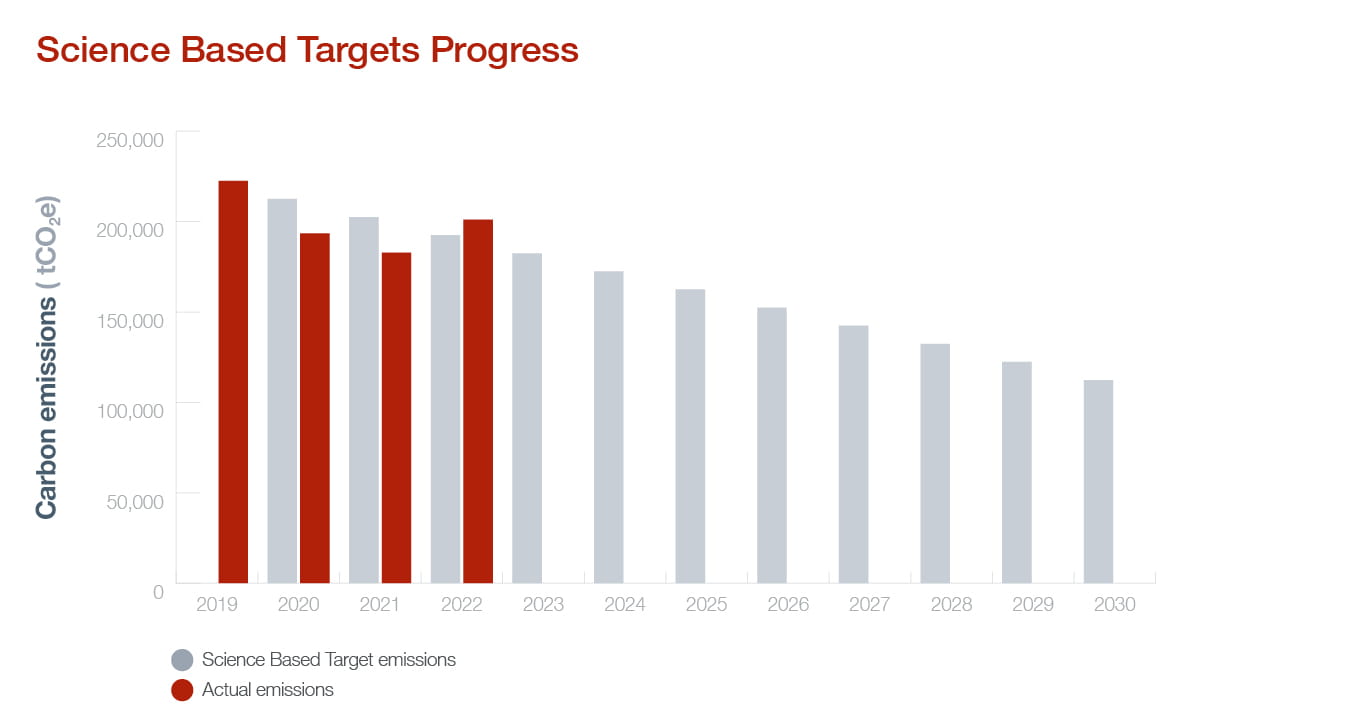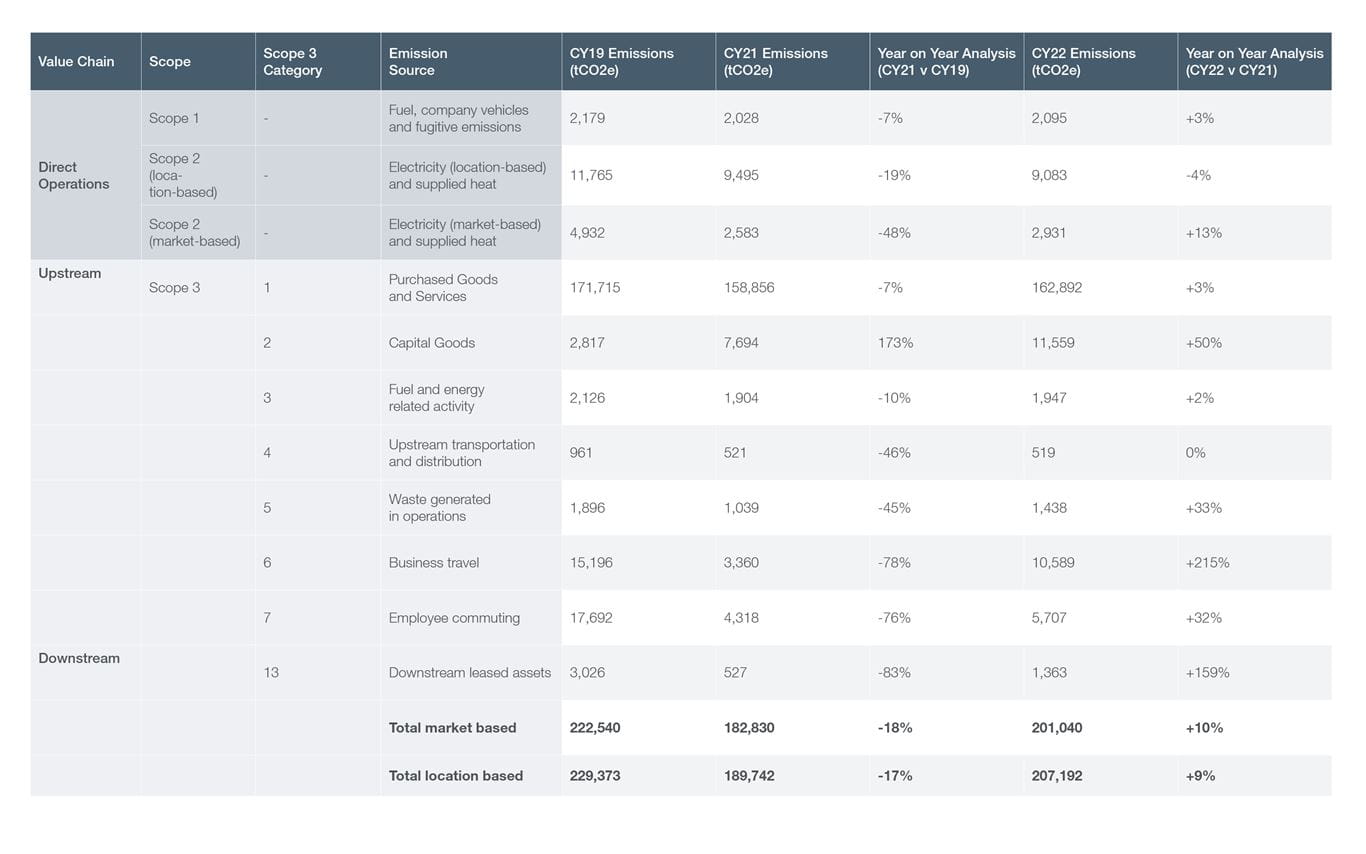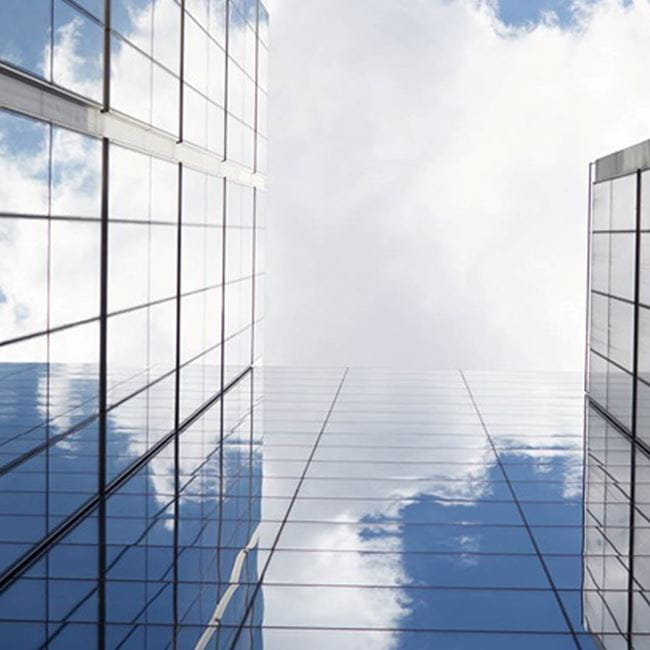

Environmental sustainability
We recognise that, as a global business, we need to rise to the challenges and opportunities of environmental sustainability by continually improving our environmental performance.
Our vision
“To contribute to improving the environmental sustainability of the legal sector by implementing best practice in operational management”
Our management framework, ambition, enthusiasm and data are shared across our international network. We work closely with our people, service partners, clients and external stakeholders to make a difference to the world around them. We continue to be an Executive Board member of the Legal Sustainability Alliance, a collaborative UK-based network of law firms sharing and developing best practice to enable law firms to address the risks and opportunities that the climate emergency and other economic and environmental mega-trends present. We support the UK Legal Renewables Initiative, and are committed to procuring 100% renewable electricity for our UK offices by 2025.
Our environmental management system
Our approach is underpinned by our ISO 14001 (UK & Netherlands) certified environmental management systems. The scope of our management systems are:
- UK - “Provision of buildings engineering, facilities management and front of house services at Allen & Overy in London and Belfast”
- Netherlands - “The provision of business services in the areas of catering, cleaning, security, reception, document management and reproduction and building management at Allen & Overy in Amsterdam”
Those three locations are currently responsible for 44% of our Scope 1, 2 and business travel related Scope 3 carbon footprint covered by our certifications.
Real Estate Sustainability
Real Estate is the only significant contributor to our Scope 1 & 2 emissions. As we measure impacts across all three scopes, we are rolling out a number of initiatives to help us manage the footprint of our offices, and to minimise future consumption, resource use and emissions. We are also working to improve the quality of data we use to calculate the impact and track progress against our SBTs. In particular:
- Revisions and improvements to our sustainability appraisal tool, bringing much needed standardisation of new site assessments and removing subjectivity of interpretation of real estate credentials
- Development of improved green lease clauses, providing our Real Estate team with tools to effectively leverage our Environmental Sustainability agenda in negotiation of property leases
- Improvements to our processes for mapping of emission sources and identifying other relevant data and information related to the operation, management and reporting on environmental impacts across our global estate
Our aspiration is also to select buildings with a minimum environmental certification of BREEAM Excellent / LEED Gold, and wellbeing certification of WELL Gold. During the year our new Budapest office obtained LEED Gold certification for our fit-out and almost every other ongoing real estate project has been actively pursuing certification.
Our emissions reduction targets
Our target of reducing absolute Scope 1, 2 and 3 emissions by 50% by 2030 (from a 2019 baseline) was approved by the Science-based Targets Initiative in April 2021 and we have now entered the third year of action during which we are looking to solidify our approach and start accelerating progress.
We have continued with our six working groups – dedicated to governance, data and reporting, supply chain, business travel, real estate and communications – prioritising the challenges of improving relevant management reporting data and information, and engaging with our supply chain in order to further understand the priority areas for collaboration. In 2022 the environmental working groups supported four out of ten of our Sustainable Development Goals (SDGs), being SDGs 7 (Affordable and Clean Energy), 8 (Decent Work and Economic Growth), 12 (Responsible Consumption and Production) and 13 (Climate Action).
Our progress against the targets for 2020, 2021 and 2022 against our baseline emissions of 2019 are summarised in the chart below. Note that these reported emissions should be taken in the context of the global Covid-19 pandemic that significantly affected ways of working across our global offices during 2021-22.

Greenhouse gas emissions 2022
Our main areas of impact in terms of CO2 equivalent emissions are:
- In Scope 1 - buildings
- In Scope 2 - buildings
- In Scope 3 - purchased goods and services, employee commuting (including homeworking emissions) and business travel
We noted a significant year-on-year increase in our business travel emissions related to global recovery from the Covid-19 pandemic. Our air travel-related emissions are nonetheless still 30% below the 2019 baseline and in line with reductions required to meet our targets. Our employee commuting emissions have also increased compared to the previous year, indicative of changing global patterns of agile working.
The emissions related to goods and services required to run the business operations (Purchased Goods and Services category) increased slightly year-on-year but are 5% below the 2019 baseline.
The small overall reduction is reflective of limited availability of primary data from our supply chain but on track against our supplier engagement program designed to help us meet the reduction targets.
The overall reported emissions are 10% below our 2019 baseline2 and have increased by 10% between 2021 and 2022. A breakdown of emissions by scope in accordance with the Greenhouse Gas Protocol are summarised below:

2 Our SBT uses the market based approach for Scope 2 electricity emissions
Environmental performance 2022
Our global performance for our most material metrics through calendar year 2022 (and a comparison to prior years) are summarised below:

Carbon offsetting & renewable energy
We continued to purchase Verified Carbon Standard/CCB-Gold carbon offsets from the REDD+ Project for Caribbean Guatemala Conservation Coast to offset the CO2e from our Scope 1/2 and buildings and business travel related Scope 3 residual emissions in 20211.
78% of our global electricity consumption was supplied from renewable sources in 2022, including on-site generation at our London and Brussels offices.
1 Emissions are offset from all scope 1 (e.g. gas use, refrigerant losses, company vehicles), scope 2 (i.e. purchased electricity which is not 100% renewable sourced) and the following scope 3 emission sources; water, waste, paper, hotel stays and business travel including plane, train and taxi journeys.



